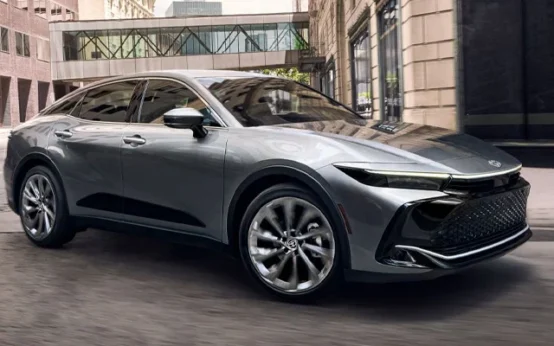Electric cars have come a long way since their inception. With advancements in technology, they have become more efficient, affordable, and convenient for everyday use. In this blog post, we will explore the latest innovations in electric cars and how they are shaping the future of transportation.
1. Extended Range
One of the major concerns for electric car owners is range anxiety. However, recent advancements in battery technology have significantly improved the range of electric vehicles. Manufacturers are now producing electric cars that can travel over 300 miles on a single charge. This means that electric cars are no longer limited to short commutes but can also be used for long-distance travel.
2. Fast Charging
Charging infrastructure has also seen significant improvements in recent years. The introduction of fast-charging stations has made it easier and quicker to recharge electric vehicles. These stations can charge an electric car up to 80% in just 30 minutes. This means that electric car owners can conveniently charge their vehicles while taking a short break during a long journey.
3. Advanced Battery Technology
Battery technology is at the heart of electric cars, and continuous research and development have led to significant improvements. Lithium-ion batteries, which are commonly used in electric cars, have become more efficient and affordable. Additionally, researchers are exploring alternative battery technologies, such as solid-state batteries, which have the potential to further enhance the performance and range of electric vehicles.
4. Regenerative Braking
Regenerative braking is a feature that allows electric cars to recover energy while braking. When the driver applies the brakes, the electric motor reverses its operation and acts as a generator, converting the kinetic energy of the moving vehicle into electrical energy. This energy is then stored in the battery and can be used to power the car later. Regenerative braking not only improves the overall efficiency of electric cars but also helps to extend their range.
5. Autonomous Driving
Autonomous driving technology is rapidly advancing, and electric cars are at the forefront of this revolution. Many electric car manufacturers are integrating advanced driver-assistance systems (ADAS) into their vehicles, which enable features such as lane-keeping assist, adaptive cruise control, and automated parking. These features not only enhance the driving experience but also contribute to increased safety on the roads.
6. Connectivity and Smart Features
Electric cars are becoming more connected than ever before. They are equipped with advanced infotainment systems that provide real-time information about charging stations, traffic conditions, and nearby amenities. Additionally, electric cars can be remotely controlled and monitored through smartphone apps, allowing owners to check the battery status, pre-heat or pre-cool the interior, and even locate their vehicle in a crowded parking lot.
7. Sustainable Materials
As the world becomes more conscious of environmental issues, electric car manufacturers are also focusing on using sustainable materials in their vehicles. From recycled plastics to eco-friendly upholstery, these materials not only reduce the carbon footprint of electric cars but also contribute to a more sustainable future.
In conclusion, the latest technological advancements in electric cars have revolutionized the automotive industry. With extended range, fast charging, advanced battery technology, regenerative braking, autonomous driving, connectivity, smart features, and the use of sustainable materials, electric cars are becoming increasingly practical and appealing to a wider audience. As we continue to embrace electric mobility, we can expect even more exciting innovations in the future.



 Is the 2025 Toyota Crown worth $41,440?
Is the 2025 Toyota Crown worth $41,440?  Electric vs. Gas: The Economics of Owning an Electric Vehicle Long-Term
Electric vs. Gas: The Economics of Owning an Electric Vehicle Long-Term  EV Maintenance 101: Essential Tips for Keeping Your Electric Vehicle in Top Shape
EV Maintenance 101: Essential Tips for Keeping Your Electric Vehicle in Top Shape  Crypto Market Value Drops 30% as Trump Tariffs Spark Global Economic Turmoil
Crypto Market Value Drops 30% as Trump Tariffs Spark Global Economic Turmoil  Fartcoin Surges 10% as Major Cryptocurrencies and Stocks Suffer Amid Trump’s Trade War
Fartcoin Surges 10% as Major Cryptocurrencies and Stocks Suffer Amid Trump’s Trade War  Crypto Funds Face $240 Million in Outflows as U.S. Tariffs Drive Market Uncertainty, Bitcoin ETPs Lead Decline
Crypto Funds Face $240 Million in Outflows as U.S. Tariffs Drive Market Uncertainty, Bitcoin ETPs Lead Decline  Why Cryptocurrency is Losing Trust as a Currency
Why Cryptocurrency is Losing Trust as a Currency  EUR/USD Pair Projections for Q3 2023 in Forex Trading
EUR/USD Pair Projections for Q3 2023 in Forex Trading  USD/JPY Pair Projections for Q3 2023 in Forex Trading
USD/JPY Pair Projections for Q3 2023 in Forex Trading